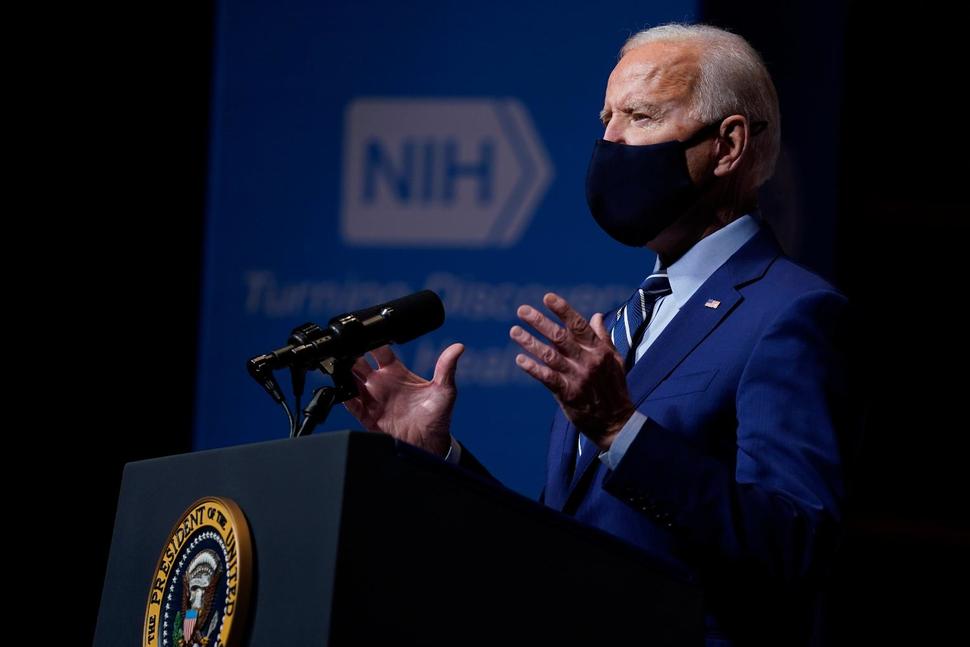The Biden administration is shifting to revoke a controversial coverage championed by the Trump administration that allows states to impose so-called work necessities on low-income individuals as a situation of their receiving Medicaid advantages.Politico and different retailers report that officers on Friday deliberate to inform states that work necessities will not be acceptable. Officers additionally plan to withdraw a letter issued by the Trump administration that opened the door for such packages, which have confronted quite a few authorized challenges and aren’t at present in use in any state. The Trump administration, which dubbed the coverage a "neighborhood engagement" initiative, invited states to use for approval in 2018, stating that "a rising physique of proof means that concentrating on sure well being determinants, together with productive work and neighborhood engagement, could enhance well being outcomes." States additionally may search to tie Medicaid eligibility to actions reminiscent of neighborhood service and schooling.A tracker from the Kaiser Household Basis lists 12 states with work requirement initiatives that had been both authorized and applied, authorized and never applied or put aside by a court docket. Information from Arkansas – the primary state to truly implement work necessities earlier than its effort was struck down in court docket – confirmed that some 18,000 individuals misplaced their Medicaid protection after implementation. Different states that noticed their initiatives struck down embody New Hampshire and Michigan. Final 12 months, Utah pulled again its coverage as a result of coronavirus pandemic. The U.S. Supreme Courtroom is slated to listen to arguments relating to the legality of labor necessities in New Hampshire and Arkansas on March 29, although the difficulty could turn into moot by means of the Biden administration''s efforts.The strikes are slated to return after President Joe Biden final month directed companies to overview insurance policies that would curb Medicaid protection.
Biden Shifting to Bar Medicaid Work Necessities
0
0
SHARES
71
VIEWS
Leave a Reply Cancel reply
BROWSE BY CATEGORIES
BROWSE BY TOPICS
Alexa Lardieri
Associated Press
Best States
Best Stocks
Biden
business
Business News
China
Collections: Business
Collections: Top News
Collections: US
coronavirus
Donald
economy
education
Education Lab
elections
Financial Advisors
foreign policy
health
Healthiest Communities
Healthiest Communities Health News
Health News
infectious diseases
Investing 101
Joe
Lisa Hagen
lung disease
National News
News
Paul D. Shinkman
personal finance
picks
Politics
public health
Russia
Stock Market News
Susan Milligan
Trump
United States
vaccines
Washington Whispers
world
world news
World Report
Archives
- June 2022
- May 2022
- April 2022
- March 2022
- February 2022
- January 2022
- December 2021
- November 2021
- October 2021
- September 2021
- August 2021
- July 2021
- June 2021
- May 2021
- April 2021
- March 2021
- February 2021
- January 2021
- December 2020
- November 2020
- October 2020
- September 2020
- August 2020
- July 2020
- June 2020
- May 2020
Nsapk.com is the driving force behind decisions that largely define the quality of our readers’ and users’ lives.
- Trending
- Comments
- Latest
Biden to Faucet Former Sen. Invoice Nelson to Lead NASA
April 11, 2021
Neera Tanden Withdraws Her Nomination for OMB Director
August 17, 2021
Copyright @ 2021 Nsapk.com. All rights reserved.









